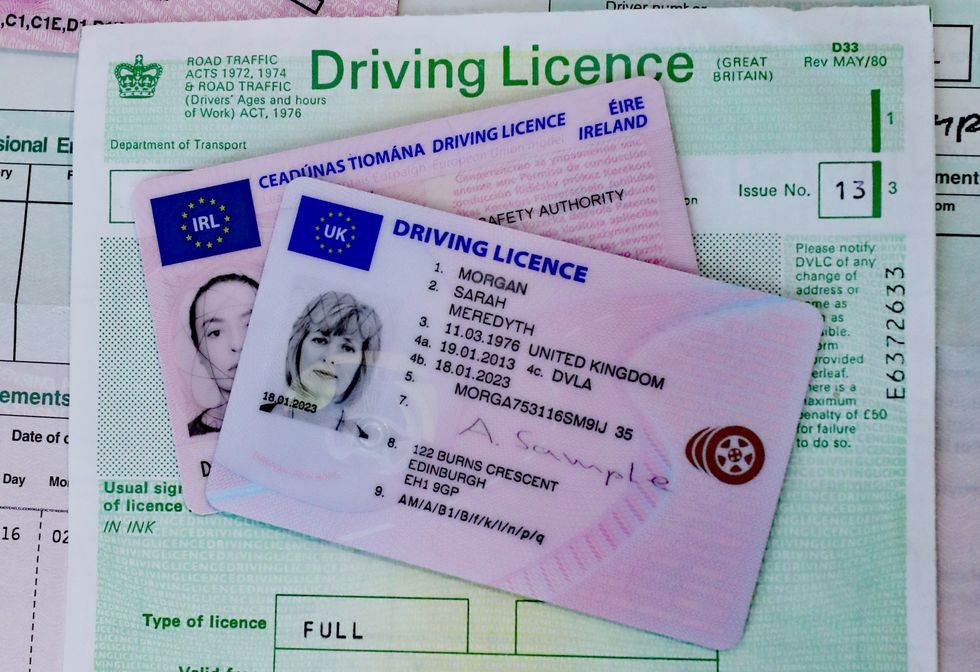Hemma Visavadia
Guest Reporter

Drivers across England and Wales have been warned not to exploit the driving licence system despite thousands using a legal loophole to do so with Labour now urged to act.
Under UK law, motorists who have more than 12 penalty points on a licence can risk being disqualified from driving, but recent reports revealed this is not always the case.
According to The Telegraph there has been an increase in the number of drivers exploiting a legal loophole to keep their licences despite accumulating more than 12 penalty points.
More than 10,000 motorists are currently on the road with more than the legal limit of licence points, marking a 17 per cent rise from five years ago.
Do you have a story you'd like to share? Get in touch by emailing [email protected]

The surge comes after thousands of drivers successfully argued "exceptional hardship" in magistrates courts to avoid disqualification.
In one extreme case, a 26-year-old man was still able to drive despite having accumulated 176 points on his licence. The loophole allows drivers to continue behind the wheel if they can convince magistrates that a ban would cause them exceptional hardship, such as job loss or inability to care for relatives.
Recent examples in court show the broad interpretation of what constitutes "exceptional hardship". A motorist living in a remote area of Scotland for example, was able to successfully avoid a ban, while another claimed insufficient public transport in south London.
One driver convinced magistrates by arguing he needed to transport his daughter to music lessons. The law does not specifically define what qualifies as exceptional hardship, leaving significant room for interpretation by magistrates.
Drivers can use this defence if they can demonstrate that losing their licence would cause severe consequences, such as unemployment or inability to care for dependents.
However, motorists who successfully use this argument cannot rely on the same reasoning if they commit another driving offence within three years.
Nick Freeman, a lawyer known as "Mr Loophole" for finding legal technicalities, has criticised the current system as being abused. "This is not what Parliament intended and the law needs to be tightened up," he said.
Freeman argued the exceptional hardship clause should be limited to a single use. "It should be one chance when it really is exceptional and then you're stuffed. That's what Parliament intended and that makes sense," he explained.
He blamed poor legislative drafting rather than lawyers exploiting the system adding that the system is being abused because it of “badly worded legislation”, noting that Parliament “should have already closed the loophole down”.
In another case of “loophole” abuse, one driver claimed “exceptional hardship” under oath without being asked to provide supporting evidence.
Nicholas Lyes, director of policy and standards at road safety charity IAM RoadSmart, warned that the number of drivers abusing the system “calls into question whether the definition of exceptional hardship needs reviewing”.
He added: “It begs the question why this minority are still out and about on the roads accruing points and potentially putting other people’s lives at risk."
LATEST DEVELOPMENTS:
- Sadiq Khan planned to introduce pay-per-mile car tax scheme to charge up to £2 to drive in London
- Donald Trump's tariffs could batter British drivers with more expensive cars amid warnings
- DVLA issues urgent warning to Britons ahead of car tax changes 'even if you don't have to pay anything'
Meanwhile, a pensioner was able to avoid the driving ban after arguing poor public transport access in Peckham.
The older motorists were caught driving 24mph in a 20mph zone, cited hip problems that limited his walking ability.
A Department for Transport spokesperson said: "We take road safety seriously, and drivers who reach 12 points should be automatically disqualified to protect themselves and others.
"Independent courts determine sentencing and whether exceptional hardship should be considered based on the facts of each case.”
Find Out More...